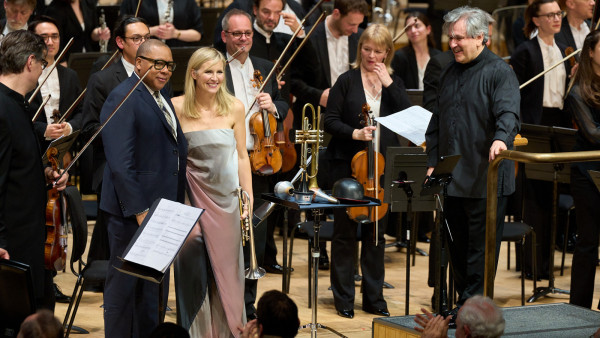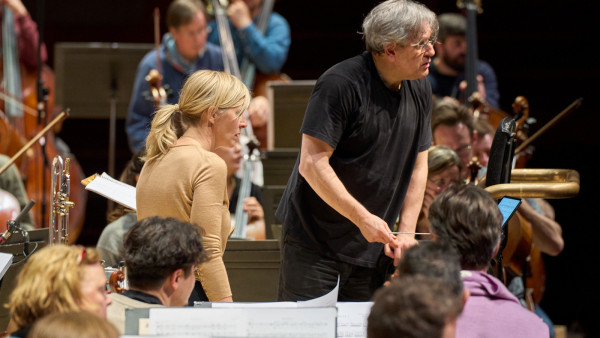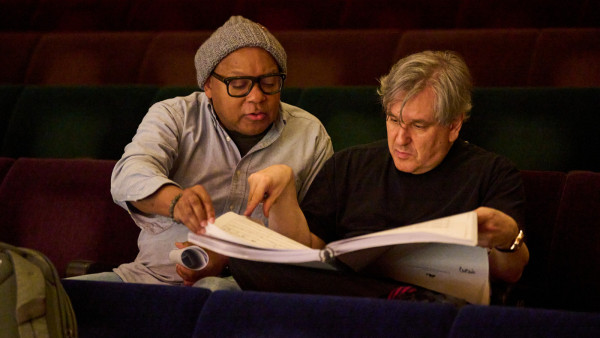Review: LSO/Pappano, Barbican
Of all our orchestras, the London Symphony Orchestra is the closest to America in its brazen, sassy sound, and it has always been welcoming to American composers and conductors. So it was inevitable that when the new trumpet concerto from virtuoso jazz trumpeter, composer and band-leader Wynton Marsalis received its British premiere, it would be given by the LSO. It took place on Thursday night in front of a packed and rapt audience, with Britain’s star trumpeter Alison Balsom as soloist, and the orchestra’s soon-to-be Chief Conductor Antonio Pappano on the podium.
A nine-time Grammy winner, Marsalis has assumed the mantle of the jazz tradition, and sometimes it sits heavy on him. The 62-year-old is insistent on the art form’s civilising qualities, using its discipline and lofty aspirations to art as a stick to beat hip hop – a stance that has made him a few enemies. As director of Jazz at Lincoln Centre Orchestra, he has made it his life’s mission to ensure that jazz reaches every school and town in America. But he also celebrates the uproariousness and spontaneity of old-time jazz in his native New Orleans.
Just occasionally, we caught a whiff of that on Thursday – not least at the concerto’s opening, when Balsom unleashed an amusing elephant’s whoop to launch things – but rude energy was mostly held at arm’s length. Marsalis’s aim was to lead us through all the different “voices” of the trumpet, so after an exuberant New Orleans-style street march we were led into what seemed like a half-forgotten ballad from the Great American Songbook, a Mexican village band, then a blues number. All this one might have predicted; less predictable was the brief excursion into a waltz, which we learned was meant to evoke the French trumpet tradition of Maurice André, before an up-tempo two-step carried us energetically over the finish line.
It was all done with great skill, each picture-postcard evoked in vivid orchestral colours. Balsom’s high-wire virtuosity and lyrical grace were complemented by beautifully turned solos from numerous orchestral players. The problem was that – apart from one or two striking moments of still reflection – each musical idea was hurried off-stage quickly by the next, so one could never savour anything. It felt like an enjoyable and somewhat dreamy musical travelogue, which rarely engaged the feelings. I never thought I’d hear a blues from Wynton Marsalis that was so entirely free of traditional bluesiness.
From that fantasy America, we moved to Ravel’s fantasy of ancient Greece, as expressed in his sumptuous, 50-minute-long ballet score Daphnis and Chloé. The big set-pieces like the sunrise in Part 3 were ecstatically gorgeous, but they are not so hard to bring off. The challenge is the numerous short episodes in the middle, which can seem bitty without the dance to guide our feelings. Pappano was clearly aware of this, and made sure that the delicious, pirouetting flexibility of these moments didn’t compromise the dramatic sweep of the whole. That, plus the dazzling virtuosity of the players and sumptuous sound of the choir Tenebrae made for something truly magnificent.
by Ivan Hewett
Source: The Telegraph



